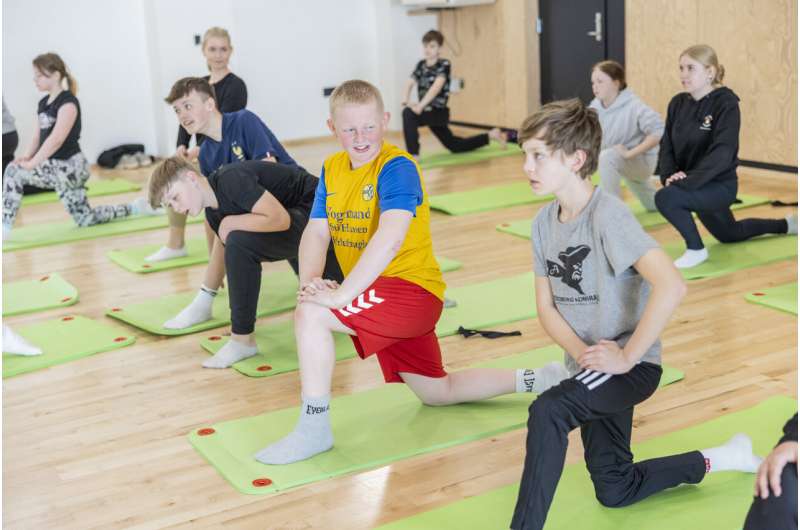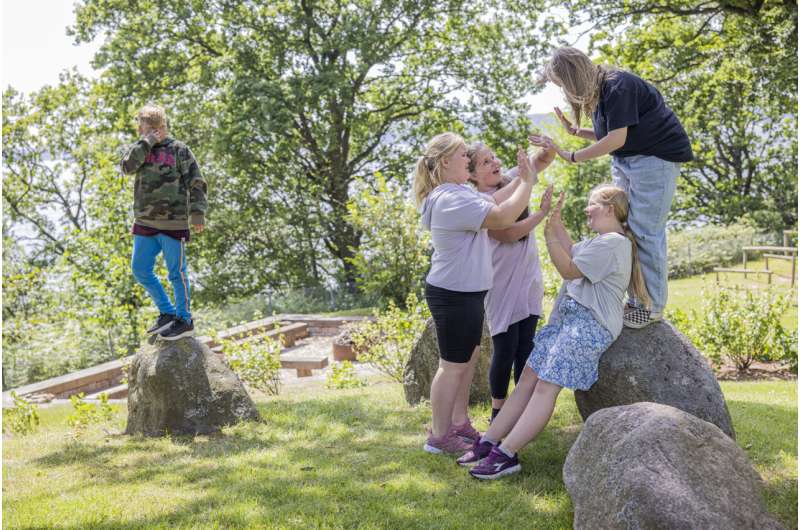This article has been reviewed according to Science X's editorial process and policies. Editors have highlighted the following attributes while ensuring the content's credibility:
fact-checked
trusted source
proofread
Socially vulnerable children improve health knowledge, well-being after residential health education program

A study has followed more than 600 socially vulnerable children who took part in a 10-week residential stay at two Danish charity homes over a 2-year study period. Through a parallel cohort study, the researchers investigated the effects of the residential stay itself, and whether there are additional effects of adding the football [soccer]-based health education program called "11 for Health."
The study is published in the Scandinavian Journal of Medicine & Science in Sports.
The children had well-being scores way below the national average when they entered the study.
"Our study shows, for the first time, that a 10-week residential stay at a Danish Charity Home has significant effects on well-being for socially vulnerable girls and boys, both in relation to physical, mental, social, and school-related well-being. Actually, the overall well-being was observed to increase to national average during the 10-week intervention," says Professor Peter Krustrup, who is responsible for the study.
Additional effects of a soccer-based health education program
"Another interesting finding is that health knowledge was further improved when adding the 11 for Health football-based health education program, especially in relation to knowledge on physical activity and the importance of intense physical activity," continues Peter Krustrup.
The researchers have previously tested the 11 for Health program in a nationwide implementation for 30,000 children in 400 schools in 92 out of 99 Danish municipalities, with marked positive effects on physical fitness, well-being and health knowledge for 10–13-year-old girls and boys, including children with low physical literacy scores.

The present study showed that the girls and boys at the Christmas Seal Homes took part in 90% of the 11 for Health sessions and that they reported average enjoyment scores of 3.6 using a 1-5 Likert Scale, with similar scores for boys (3.6) and girls (3.5). These scores are similar to the average 11 for Health enjoyment scores in the national implementation study for public and private schools.
"The present study shows that the 11 for Health program is feasible, enjoyable and effective in increasing health knowledge for socially vulnerable children with low physical literacy. It will be interesting to see whether more knowledge on, and positive experiences with, physical activity, can enhance moderate-to-vigorous physical activity in the long-term," ends Professor Krustrup.
First author Trine Kjeldgaard Møller will submit her Ph.D. thesis at the University of Southern Denmark in June 2024 (primary supervisor Peter Krustrup, co-supervisor Malte N. Larsen), focusing on the combined effects of the 10-week residential stay at the Christmas Seal Homes and the 11 for Health program on physical fitness, physical activity, health knowledge, well-being, sleep, and stress.
Co-author Kristina Pfeffer, Ph.D. student at University of Southern Denmark, will submit her Ph.D. thesis (primary supervisor Peter Krustrup; co-supervisors Nikos Ntoumanis and Malte Nejst Larsen) in October 2025 about the long-term effects of the Christmas Seal Home intervention.
More information: Trine K. Møller et al, The effects of a combined physical activity and health education program on health knowledge and well‐being of socially vulnerable children, Scandinavian Journal of Medicine & Science in Sports (2024). DOI: 10.1111/sms.14606




















